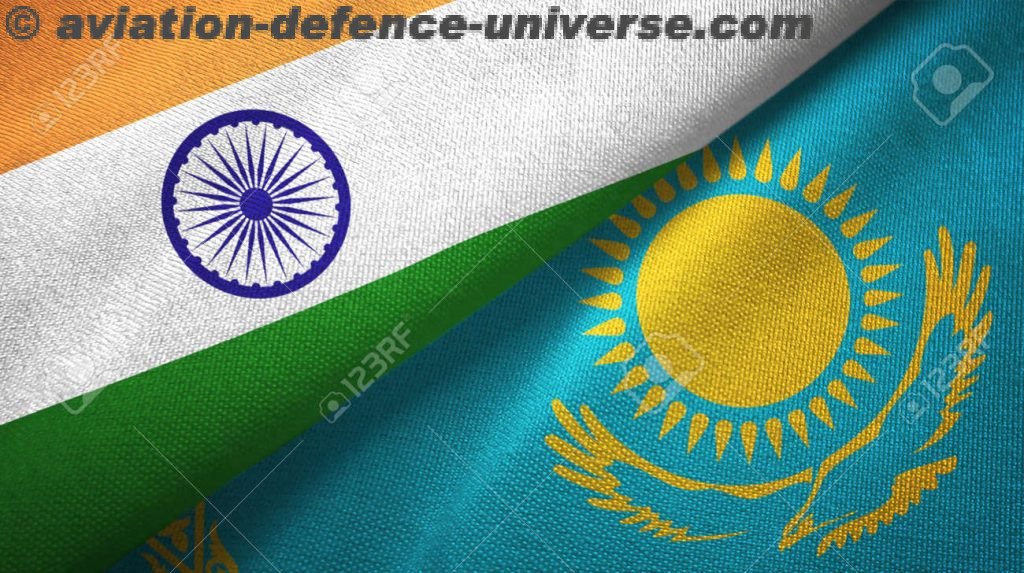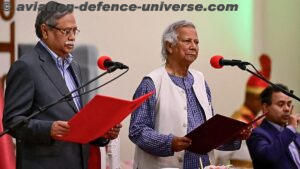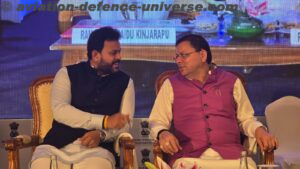By Sangeeta Saxena
New Delhi. 08 April 2024. Eyeballs have turned towards Astana, the Kazak capital . India places a lot of importance on its ties with Kazakhstan, the former Soviet Union’s second-largest republic. The political cooperation between the two nations is very active at the moment. The 5th Meeting of India-Kazakhstan Joint Working Group on Counter Terrorism was held there recently. The Indian delegation was led by K.D. Dewal, Joint Secretary (CT), Ministry of External Affairs of the Republic of India, and the Kazakhstan delegation by Talgat Kaliyev, Ambassador-at-Large, Ministry of Foreign Affairs of the Republic of Kazakhstan.
One of the first nations to acknowledge Kazakhstan’s independence was India. In February 1992, diplomatic relations were established. In May 1992, the Indian Embassy opened in Almaty, and in 1993, the Kazakh Embassy opened its doors in New Delhi. In 1997, Astana replaced Almaty as Kazakhstan’s capital. Indo-Kazakh relations date back to the era of the great Silk Route, which served as a route for Buddhism to travel from India to Kazakhstan in addition to being used to transport Indian goods to the Far East. The history of Indo-Kazakh relations begins in the third century BC. However, Moscow was the intermediary for Indo-Kazakh relations during the Soviet era. India’s Prime Minister Jawaharlal Nehru paid a visit to Almaty in 1955 with his daughter, Indira Gandhi, who would go on to become Prime Minister herself. In May 1992, India opened its Embassy in Almaty to establish diplomatic ties with the newly independent Kazakhstan. In September 1993, the Kazakhstani Embassy opened its doors in New Delhi.
Both sides exchanged views on the terrorist threats in their respective regions, including State-sponsored, cross-border terrorism in South Asia, besides terror activities in the Af-Pak region. The two sides assessed counter terrorism challenges, including the use of new and emerging technologies by terrorists, misuse of internet for terrorist purposes, radicalisation and terror financing.
Both sides emphasised the importance of strengthening counter-terrorism cooperation through exchange of information, capacity building, training programmes, and cooperation at the multilateral fora, such as the UN, EAG and SCO. The two sides agreed to hold the 6th Meeting of JWG on CT in India on a mutually-convenient date.
The premier bilateral institutional mechanism for fostering trade, economic, scientific, technological, industrial, and cultural cooperation between India and Kazakhstan is the Inter-Governmental Commission (IGC), which was founded in 1993. The nodal ministries are the Ministries of Energy in Kazakhstan and Petroleum and Natural Gas in India, whose respective ministers serve as the Commission’s co-chairs. In the fields of counterterrorism, trade and economic cooperation, information technology, hydrocarbons, textiles, tea debt, defence and military technical cooperation, and space cooperation, eight Joint Working Groups have been formed. It has been determined to advance bilateral relations in the respective domains by forming two new Joint Working Groups on Transport & Connectivity and Health.
The biggest trading and investment partner of India in Central Asia is Kazakhstan. According to Kazakhstani statistics, the total value of bilateral trade between India and Kazakhstan was US$ 1.2 billion, of which US$ 954.08 million was exported from Kazakhstan and US$ 242.78 million was exported from India.
For India, Kazakhstan is a key partner in economic cooperation. India has significant trade relations with only one nation in Central Asia, Kazakhstan. For instance, the ISPAT International Consortium modernised Karaganda Metal Plant, bought its shares, and made it a profitable business. When ISPAT-KARMET began exporting 90% of its goods to India in 1997, Kazakhstan experienced a positive trade balance for the first time. The joint venture between Kazakhstan and India is a pharmaceutical factory in Almaty. Indian businesses maintain offices in Kazakhstan and actively contribute to the country’s economy with capital. The Government of Kazakhstan and Larsen & Toubro signed a business venture agreement in November 1999. A memorandum of understanding and cooperation for the growth of small businesses and the establishment of new employment spaces has also been signed by Kazakhstan and India. In Asthana, a centre for entrepreneurial development is being constructed. The list is endless.

























































































































